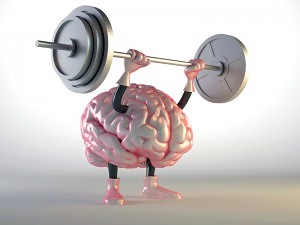Article By: Alvaro Fernandez
Let’s review some good lifestyle options we can follow to maintain, and improve, our vibrant brains.
- Learn what is the “It” in “Use It or Lose It”. A basic understanding will serve you well to appreciate your brain’s beauty as a living and constantly-developing dense forest with billions of neurons and synapses.
- Take care of your nutrition. Did you know that the brain only weighs 2% of body mass but consumes over 20% of the oxygen and nutrients we intake? As a general rule, you don’t need expensive ultra-sophisticated nutritional supplements; just make sure you don’t stuff yourself with the “bad stuff”.
- Remember that the brain is part of the body. Things that exercise your body can also help sharpen your brain: physical exercise enhances neurogenesis.
- Practice positive, future-oriented thoughts until they become your default mindset and you look forward to every new day in a constructive way. Stress and anxiety, no matter whether induced by external events or by your own thoughts, actually kills neurons and prevent the creation of new ones. You can think of chronic stress as the opposite of exercise: it prevents the creation of new neurons.
- Thrive on Learning and Mental Challenges. The point of having a brain is precisely to learn and to adapt to challenging new environments. Once new neurons appear in your brain, where they stay in your brain and how long they survive depends on how you use them. “Use It or Lose It” does not mean “do crossword puzzle number 1,234,567″. It means, “challenge your brain often with fundamentally new activities”.
- We are (as far as we know) the only self-directed organisms in this planet. Aim high. Once you graduate from college, keep learning. Once you become too comfortable in one job, find a new one. The brain keeps developing, reflecting what you do with it.
- Explore, travel. Adapting to new locations forces you to pay more attention to your environment. Make new decisions, use your brain.
- Don’t Outsource Your Brain. Not to media personalities, not to politicians, not to your smart neighbor… Make your own decisions, and mistakes. And learn from them. That way, you are training your brain, not your neighbors’.
- Develop and maintain stimulating friendships. We are “social animals”, and need social interaction. This, by the way, is why ‘Baby Einstein’ has been shown not to be the panacea for children development.
- Laugh. Often. Especially to cognitively complex humor, full of twists and surprises. Better, try to become the next Jon Stewart
Now, remember that what counts is not reading this article-or any other-, but practicing a bit every day until small steps snowball into unstoppable, internalized habits…so, pick your next battle and try to start improving at least one of these 10 habits today. Revisit the habit above that really grabbed your attention, and make a decision to try something different today! [end of article]
Call BrainFlex™ Wellness Club and get started today!
The information provided is for general informational purposes only and is not intended to be medical advice or a substitute for professional health care. You should consult an appropriate health care professional for your specific needs and to determine whether making a lifestyle change or decision based on this information is appropriate for you.
 Can brain exercises keep your brain healthier as you age and prevent memory loss? Can they even prevent or delay dementia such as Alzheimer’s?
Can brain exercises keep your brain healthier as you age and prevent memory loss? Can they even prevent or delay dementia such as Alzheimer’s?  Fatty Fish
Fatty Fish